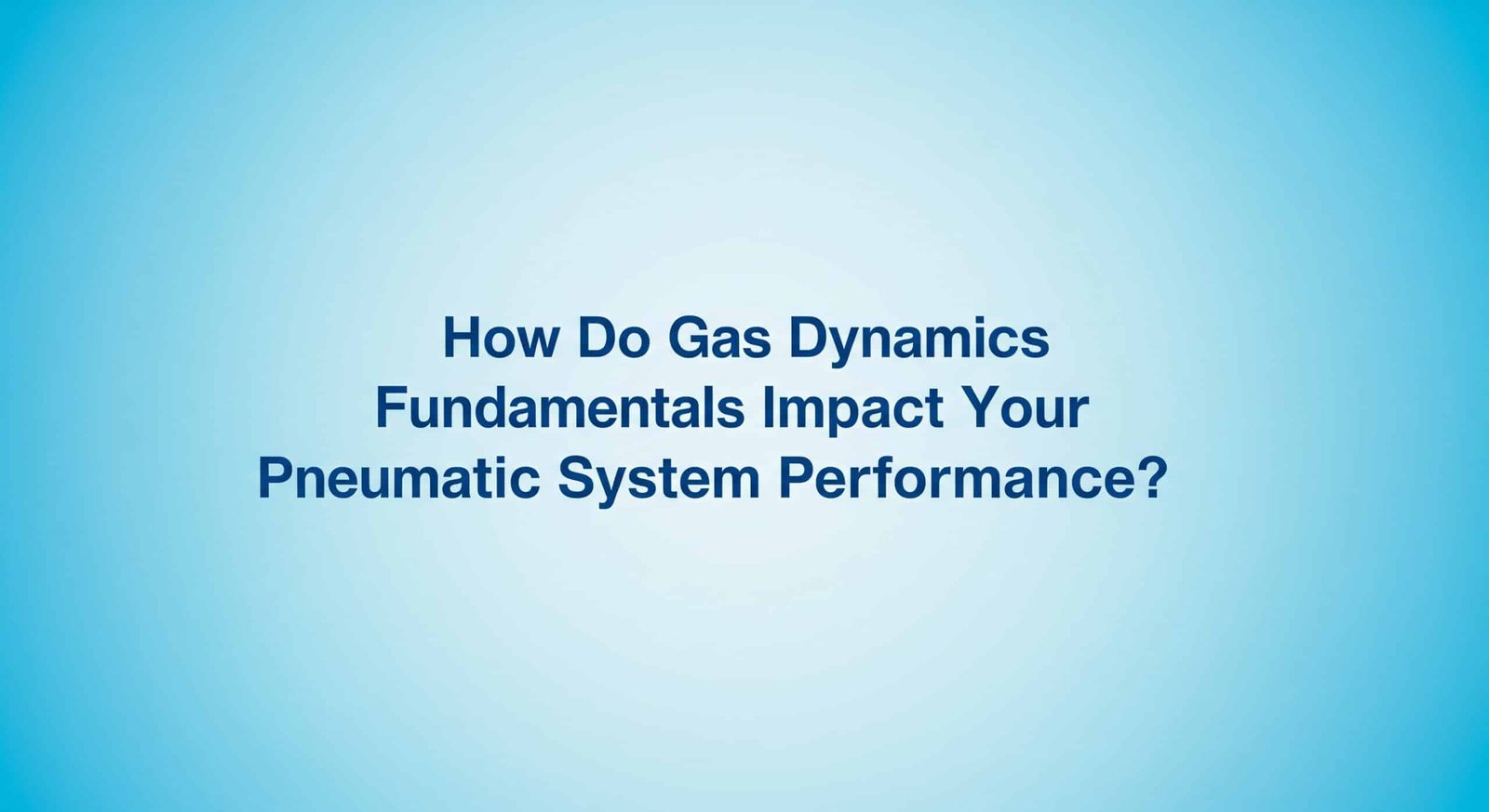
摩擦學如何影響您的氣動系統效能?
摩擦學 - 有關摩擦、磨損和潤滑的科學 - 會影響能源效率、元件壽命和操作可靠性,從而直接影響氣動系統的性能。了解這些基本原理可減少高達 30% 的維護成本,並延長設備壽命數年。
探索氣動元件的未來。我們的部落格提供專家見解、技術指南及產業趨勢,協助您創新及優化您的自動化系統。

摩擦學 - 有關摩擦、磨損和潤滑的科學 - 會影響能源效率、元件壽命和操作可靠性,從而直接影響氣動系統的性能。了解這些基本原理可減少高達 30% 的維護成本,並延長設備壽命數年。

氣動功率計算是確定氣動系統的能量消耗、力的產生和效率的系統過程。正確的建模包括輸入功率(壓縮機能量)、傳輸損耗和輸出功率(實際執行的工作),讓工程師能夠找出低效率的地方並優化系統效能。

氣動系統中的聲學噪音是透過三種主要機制產生的:壓力釋放時的氣體膨脹、元件的機械振動以及管道和配件中的湍流。瞭解這些機制可讓工程師實施針對性的降噪策略,以改善工作場所的安全性、提高能源效率並延長設備壽命。

Heat transfer in pneumatic systems occurs through three mechanisms: conduction through component materials, convection between surfaces and air, and radiation from hot surfaces. Understanding and optimizing these principles can reduce operating temperatures by 15-30%, extend component life by up to 40%, and improve energy efficiency by 5-15%.

Gas dynamics is the study of gas flow behavior under varying conditions of pressure, temperature, and velocity. In pneumatic systems, understanding gas dynamics is crucial because flow characteristics change dramatically as gas velocity approaches and exceeds the speed of sound, creating phenomena like choked flow, shock waves, and expansion fans that significantly impact system performance.
